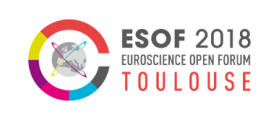Has digital media changed how people feel about science? ESOF 2018
The media landscape has shifted with the proliferation of new digital technologies and disintegration of mainstream media. The internet has changed the way people look for, find and consume information. Open science is opening up new opportunities and changing the way information is shared and communicated. And citizens are also becoming actively encouraged to participate in and contribute to the research process.
But have these trends changed the impact of science communication? Is there evidence that new technologies have resulted in a society that has a different attitude to science? What are the opportunities to open up science using digital media?” What are the barriers and limitations of using digital technologies to communicate science?”
This highly interactive session offers everyone involved in science communication an opportunity to share their experiences and views in smaller groups and using a digital voting system. The aim is to provide new perspectives and inspiration and a snapshot of the impact that new forms of science communication are having around Europe.
The session is led by Gail Cardew, Professor of Science, Culture and Society, and Director of Science and Education at the Royal Institution of Great Britain.
Representatives from 10 science communication organisations from around Europe will facilitate the roundtable discussions:
- Sander Kask, Science Centre AHHAA Foundation, Estonia
- Giuseppe Pellegrini, Observa Science in Society, Italy
- Aleksandra Drecun, Intersection – Center for Science and Innovation, Serbia
- Camilla Modéer, EuroScience
- Enrico Balli, Sissa Medialab, Italy
- Philipp Burkard, Science et Cité, Switzerland
- Markus Weißkopt, Wissenschaft im Dialog, Germany
- Cissi Askwall, VA (Public & Science), Sweden
- Liina Hultgren, Royal Institution of Great Britain
- Katerina Kaouri, Scico Cyprus
The session is organised by VA and the Royal Institution of Great Britain.
More information
ESOF (EuroScience Open Forum) is the largest interdisciplinary science meeting in Europe. It is dedicated to scientific research and innovation and offers a unique framework for interaction and debate for scientists, innovators, policy makers, business people and the general public. Created in 2004 by EuroScience, this biennial European forum brings together over 4,000 researchers, educators, business actors, policy makers and journalists from all over the world to discuss breakthroughs in science. More than 40% of the participants are students and young researchers.
Other ESOF 2018 events
VA is also organising:
Friday 13 July at 17:00 – 18:15
NextGen SciComm – digital tales from the Nordics
VA colleagues are also participating in four additional sessions:
Tuesday 10 July at 13:30 – 14:45
Trusting science: public attitudes in Germany, Sweden and Switzerland
Organised by Wissenschaft im Dialog
Wednesday 11 July at 17:00 – 18:15
Responsible Science Communications for better informed citizens
Organised by Elsevier
Thursday 12 July at 17:00 – 18:15
Scicomm researchers and science communicators – bridging the divide
Organised by the Swedish Research Council
Friday 12 July at 13:30 – 14:45
How can public opinion shape the future of genome editing? Why, how, what and when? An experiment in Open Science
Organised by the ORION Open Science EU-project. For more details about the session see the ORION website.
The ORION project is also organising a workshop on
Does Open Science Improve Your Career Prospects? Understanding the Challenges and Benefits of Open Science on Thursday 12 July at 10:15-11:30
For more details about this workshop see the ORION website.

